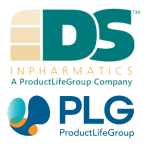Ever present but seldom seen, while being increasingly vital, the rapidly expanding area of the Chemistry, Manufacturing and Controls (CMC) of pharmaceutical products is gradually developing into a prominent sector in its own right.

Image Credit: DS InPharmatics
CMC Regulatory Affairs (CMC RA) maintains a central role in the development, licensing, manufacture, and marketing of pharmaceutical products. As part of this vital role, experienced CMC RA professionals assist in ensuring pharmaceutical products maintain consistent levels of effectiveness, safety and quality for consumers.
Expansions in technical experiences and scientific knowledge have led to advanced biopharmaceutical manufacturing processes and products. This increased complexity has resulted in a growing and evolving array of regulatory agency expectations related to CMC activities.
It is essential that sponsor companies fully comprehend regulatory compliance requirements for their specific type of pharmaceutical product, and the resources needed to meet these requirements.
Effectively managing regulatory affairs
Conducting clinical studies and properly marketing pharmaceutical products legally requires sponsors to acquire and retain regulatory approvals. Regulatory Affairs (RA) is a strategic function and discipline which sits within a pharmaceutical company’s overall organizational structure, directly interacting with government regulatory agencies regarding regulatory approvals.
CMC RA provides the collated information which defines both the manufacturing process and the quality control release testing. It also defines the stability and specifications of the product, the manufacturing facility and its support utilities - including the facilities’ design, qualification, operation and maintenance.
CMC regulatory compliance is best understood as a process of governance, ensuring that CMC practices are undertaken in line with the expectations and requirements of regulatory agencies. Because these expectations and requirements are likely to change over time, a key function of CMC regulatory compliance is ensuring that all CMC practices are kept up to date.
The US Food and Drug Administration (FDA) launched the Critical Path Initiative in 2004. This project aimed to promote better drug development processes, enhancing the quality of evidence generated during their development, and improve outcomes from the clinical use of these products.
FDA’s key objective is the protection and promotion of public health. In terms of its work with biological products and drugs, this translates into safeguarding reasonable levels of product safety whilst simultaneously encouraging the transformation of scientific innovations into commercially viable products.
There is a degree of tension between these two objectives, leading some to feel that FDA requirements hinder innovation, while conversely, others feel that FDA standards are not stringent enough.
The underlying principle informing the Critical Path Initiative is that scientific advances in the development process are the most effective means of resolving these tensions, satisfying most parties while being of benefit to the public.
Pharmaceutical manufacturing suffers from many of drug development’s common problems. Large quantities of drug manufacturing processes are typified by waste, inefficiency, and failure to employ contemporary process control technologies.
As such, the pharmaceutical manufacturing industry would very much benefit from the incorporation of new technology, science, and additional input from experienced professionals.
Working in partnership
Modern accelerated clinical development programs tend to decrease the amount of time available for the development and proper understanding of the drug substance, drug product and any associated processes. Because of this, there should be a robust strategy in place which ensures that all vital elements of CMC can provide assurance that there will be no compromise in quality or safety.
This strategy must also be flexible enough to deliver consistent, reliable supplies of product to patients in cases where the environment is unpredictable, with potential controlled distribution to patients.
DSI has considerable expertise in CMC regulatory, technical, and project management consulting services, providing these to drug sponsors that manufacture and/or market biopharmaceuticals, pharmaceuticals, and gene and cellular therapy products.
Since 2007 it has provided its clients with novel strategies and outstanding quality work products designed to improve product development, approval, and marketing.
DSI has substantial experience in advocating CMC strategy, managing CMC operations and developing CMC submission content which represents the best interests of emerging biotech sponsors. As consultants, DSI focuses on essential CMC issues and builds programs that enrich the development process.
Pharmaceutical companies often work with CMC Regulatory Affairs consultants, with CMC RA consultants offering experience, knowledge, guidance, and advice, aiming to efficiently and effectively attain the highest chance of acquiring regulatory approval of pharmaceutical products.
It should be noted that these exceptional strategies are rarely, if ever, found in existing guidelines. Examining history and the repeating patterns which show how outliers become outliers is much more helpful. DSI has a strong track record of pleasing customers with a unique offering has which has helped them achieve success.
When a company is looking into drug development, having support from an experienced CMC RA consultant is highly recommended.
Acknowledgments
Produced from content originally authored by Edward A. Narke from Design Space Inpharmatics.
About DS InPharmatics 
DS InPharmatics (DSI) provides regulatory, technical, and project management consulting services to healthcare product companies that manufacture and/or market pharmaceuticals, biopharmaceuticals, and cellular and gene therapy products.
Since 2007 we have provided our clients with innovative strategies and exceptional quality work products intended to enhance product development, approval, and marketing presence. Whether advocating CMC strategy, directing CMC operations or developing CMC submission content that represent the best interests of emerging biotech, we focus on the critical CMC issues and build programs that enhance development.
In April 2021 we were thrilled to announce that DSI has just become part of ProductLife Group.
French-headquartered ProductLife Group (PLG) is well-known in the Life Sciences market. It has a track record of successfully managing global outsourcing programs and insourcing services for its international client base. The company is on a mission to help transform human health outcomes by optimizing regulatory affairs, safety & vigilance, and quality compliance for life sciences organizations worldwide.
The fit between our two organizations could not be more perfect. We will complement PLG's growing biotech services portfolio. US biotech sponsors recognize DSI as a leader in consulting for go-to-market strategies and RA pre-market consulting. At the same time, PLG has a strong reputation for managing end-to-end outsourcing of regulatory affairs and pharmacovigilance activities worldwide.
Our merger with PLG will harness our combined strengths, offering our clients on both sides of the Atlantic support with their developed drugs approvals and post-approvals compliance, plus advisory services on the best market strategies to deliver a rapid ROI on their development. Together we will offer our clients increased pharmacovigilance capabilities - including a QPPV; pharmacovigilance consulting; and a fully validated safety database - as well as complementary toxicology-related services; RIM/electronic document management services; and support for medical device regulatory requirements.
We see enormous potential in this new chapter for DSI and you, our clients. As a PLG company, we have the opportunity to become part of a global force in life sciences regulatory and compliance solutions and services, and we're incredibly excited to add our momentum to that effort.
Sponsored Content Policy: News-Medical.net publishes articles and related content that may be derived from sources where we have existing commercial relationships, provided such content adds value to the core editorial ethos of News-Medical.Net which is to educate and inform site visitors interested in medical research, science, medical devices and treatments.